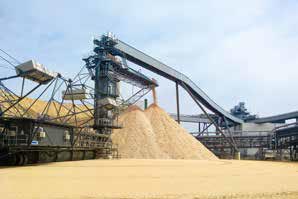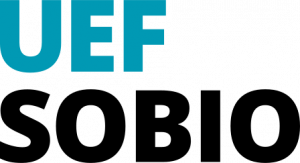Sobio Days 2019 Roundtable Seminar
SOBIO roundtable “Towards inclusive and sustainable circular bioeconomy”
10.12.2019 Brussels

SUMMARY REPORT / HIGHLIGHTS REPORT
1. SOBIO roundtable
The seminar aim was to increase knowledge transfer, collaboration and constructive discussions between SOBIO research network members and invited participants actively engaged in EU bioeconomy policy, development and research. The SOBIO roundtable enabled discussions on how to serve a growing demand for in-depth knowledge on localities and a better social inclusion, knowledge that could be used in EU bioeconomy related policy making, such as the EU Green Deal (2019) and related action plans. There is a growing need to recognize that the circular based bioeconomy is not just about the economy and growth, but rather about finding more sustainable solutions for our society and opportunities for sustainable development. Based on the current research, circular based bioeconomy has profound societal implications for a wide variety of actors and beyond economic sector confinements. Hence, a focus on bioeconomies must be paired with a focus on biosocieties.”
The roundtable discussion was framed around five key questions (see Annex) A key focus of the roundtable was the integration of more locally driven, qualitative knowledge to construct a socially inclusive and participatory bioeconomy. We urge that this is not understood as a replacement of current, largely quantitative indicators used for bioeconomy monitoring but as a complementary, strengthening component, hence, a “safeguard” to assure socially inclusive and sustainable bioeconomy.

2. Roundtable summary: Findings from the discussion
According to our evaluation:
1. Policy makers on all institutional levels willing to design suitable and socially inclusive policy for future bioeconomy development do not have access to up-to-date knowledge on localized development and citizen participation.
2. To ensure socially inclusive policymaking, the integration of citizens (particularly young) must be increased and therefore requires more attention and research on possible pathways. This will help to avoid conflicts and it will create support for policies and measures.
3. Regional best practices employed for policy to make require qualitative approaches as “reality checks” that include local participation and avoid misrepresentation driven by competition for funds.
4. There is a need to address the question who benefits from the development of bioeconomy, so “bioeconomy for whom?”. This also includes accepting and addressing varying challenges/conflicts/trade-offs attributed to bioeconomy development by different affected groups in a more transparent way. This must go beyond desktop SWOT or risk analysis and engage with the local realities of different stakeholders.
5. In the long term it is necessary to engage local participation in circular based bioeconomy development. To foster local participation, new forums for conversation are necessary. Transparency on standards for public consultations and civil society engagement is essential to avoid the label of “social-wash”. Trusted regional and local networks have a key role in creating forums for inclusive planning.

3. Future suggestions based on the roundtable
1. Adopting a new approach
The need of social inclusion beyond “informed consent” is acknowledged in most current sustainable development strategies (e.g. Green Deal, SDG’s…), yet achievements and (envisioned) instruments are well behind needs in this policy arena. Hence, a new approach to achieving wide citizen participation is required for a socially inclusive bioeconomy. The new approach should make use of the information accumulated within citizens’ everyday tasks while fostering citizens’ capabilities to express their views and participate within their own spheres of life in the bioeconomy realization.
2. Creating accessible participation processes
There is a need for an additional institutional and supervisory platform that is tasked to monitor and facilitate participation and local outcomes, so that bioeconomy initiatives are sufficiently inclusive and attentive to local complexities. We note that current arenas have failed so far and this means the risk of “social wash” cannot be avoided.
The level of participation in planning and development should be regional or local in order to tie participation to citizens’ needs. Participation and consultation processes need to be tied clearly to lower levels (e.g. regional calls to comment on EU policy making). Constructive self-criticism of regions when promoting and assessing their own developments and monitoring their efforts should be encouraged in order to counter excessively optimistic (often assumptive) best practice stories due to regional competition for funds.
Transparency of participatory processes and the integration of local knowledge is key to building trust and encouraging active long-term engagement. Deliberation and local level feedback, for instance by using participatory mapping, reflexive monitoring or narrative assessment methods, can facilitate bioeconomy monitoring and assessment. Tied to regional public consultations and streamlined in Europe-wide qualitative integrative tools (e.g. participatory mapping apps) for citizens, this could be one possible example to engage society beyond experts.
3. Qualitative assessment of bioeconomy development
To ensure that that these suggestions for more inclusiveness and better participation are followed, policy makers must support qualitative research that critically assesses bioeconomy developments (even though this is costly and time consuming). This includes funding for in-depth, critical research to evaluate desired outcomes and unexpected as well as undesired effects of different developments to benchmark good practices and reduce inconsistency between reality and the best practice story. Narrative assessment is needed in addition to the reporting of quantifiable indicators for all levels of policy evaluation and feedback.
This research is vital for a realistic perspective on the outcomes of bioeconomy developments that complements existing information which is all too often based on “assumptive” socio-economic parameters (e.g. based on consultancy reports and estimations) in benchmarking and best practice documentation of bioeconomy development.
We propose stronger integration of qualitative assessments and knowledge co-created by EU (local) citizens into the European Commission’s Knowledge Centre for Bioeconomy (BKC). This could include new regional ICT tools to collect and share bioeconomy knowledge to ensure societal inclusion on all levels.
SOBIO contact in this matter: Moritz Albrecht (moritz.albrecht@uef.fi)
The event was facilitated by the Joint Research Centre, JRC, as coordinator of the EC Knowledge Centre for Bioeconomy https://ec.europa.eu/knowledge4policy/bioeconomy . The points presented in this report summarise the views expressed by the participants and do not imply a policy position of the European Commission.
